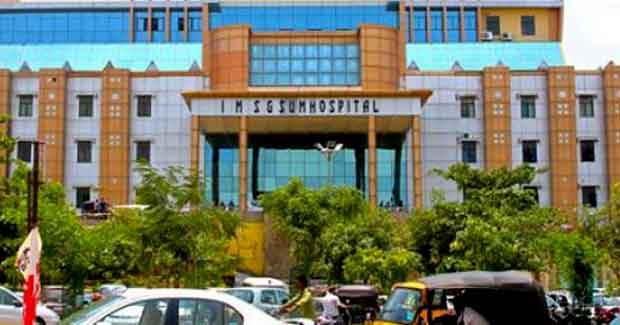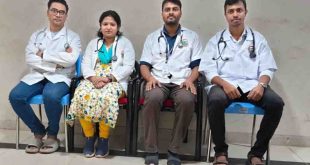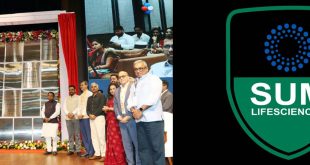Bhubaneswar: Hepatitis-B, one hundred times more infectious than HIV and one of the biggest killer diseases prowling the earth, has been claiming a staggering 1.1 million lives worldwide every year.
“But the scariest aspect of this disease is that though around 400 million people in the world are carrying the infection, more than 95 per cent of them are unaware about it,” Prof. (Dr.) Manoj Kumar Sahu, Head of the Department of Gastroenterology at the Institute of Medical Sciences and SUM Hospital, said.
Advances achieved in medical science has helped reduce mortality from diseases like HIV/AIDS, tuberculosis and malaria, but the casualty caused by Hepatitis-B has increased by 22 per cent since 2000, he said while addressing a webinar organised by SOA to mark the World Hepatitis Day on Wednesday.
The people who are infected but are unaware about their condition are at high risk of developing chronic liver disease and complications and at the same time unknowingly keep transmitting the infection to healthy people, Prof. Sahu said.
The program was organised virtually by the SOA NSS Bureau and SOA Wellness Centre with students, researchers, faculty and professors in attendance.
Prof. Sahu said there were five strains of Hepatitis — A, B,C,D and E—of which Hepatitis-B and C were the most common cause of liver cirrhosis and liver cancer in India.
“Hepatitis-A and E are transmitted by ingestion of contaminated food and water but subside within two months. Hepatitis-B, C and D, on the other hand, spread through contact with blood and infected body fluids,” he said adding the infection spread in the same way as HIV.
The theme for the World Hepatitis Day this year was ‘Hepatitis Can’t Wait’ conveying the urgency of efforts required to combat and eliminate Hepatitis as a public health threat by 2030— a deadline set up by the World Health Organisation (WHO). “Even in the midst of the present Covid-19 crisis the battle against Hepatitis couldn’t be lost sight of,” he said.
“The good news, however, is that a very effective vaccine is available since 1982 which can prevent the Hepatitis-B infection,” he informed.
This vaccine, he said, could be administered to any person of any age including pregnant women with the protection lasting a lifetime. Though a vaccine for prevention of Hepatitis-C was yet to be developed, a cure was, however, available. A single tablet, if used for three months, could completely cure the infection.
SOA Vice-Chancellor, Prof. (Dr.) Ashok Kumar Mahapatra, who was present, said hepatitis was responsible for a very high number of annual death.
“A healthy lifestyle alone can lead to a healthy liver, one of the most important organs of the human body,” he said.
Prof. Sahu said the liver was a vital organ and performed nearly 500 functions in the body. It was a unique organ which has tremendous regeneration capacity.
He said a WHO study had found that an estimated 4.5 million premature deaths could be prevented in low and middle income countries by 2030 through vaccination, diagnostic tests, medicines and education campaigns to raise the level of awareness about the global burden of viral hepatitis.
IMS and SUM Hospital created history in Odisha as it conducted the state’s first ever live donor liver transplantation and repeated the feat again, he said adding such surgery in the hospital would continue in the future.
The department of Gastroenterology in the hospital was the only of its kind in Odisha which has been extending free screening and vaccination for Hepatitis-B since the last nine years, he said adding SOA was engaged in creating awareness among the people with a goal towards elimination of the disease. The university was working in collaboration with WHO and World Hepatitis Alliance (WHA).
SOA sponsored the creation of a sand art to highlight the problem of the disease on the Puri sea beach this year to mark the World Hepatitis Day, Prof. Sahu said adding eminent sand artist Manas Kumar Sahu designed the exhibit.
Prof. Jyoti Ranjan Das, SOA’s Dean (Students’ Welfare), Sarita Patel, Regional Director, NSS and Prof. Nachieketa Sharma, NSS Coordinator also spoke in the webinar.
 Update Odisha-Latest Odisha News I Breaking News Get latest news on Odisha, Govt. Jobs, OSSC, OPSC, Entertainment, Crime, Sports, and Education
Update Odisha-Latest Odisha News I Breaking News Get latest news on Odisha, Govt. Jobs, OSSC, OPSC, Entertainment, Crime, Sports, and Education



